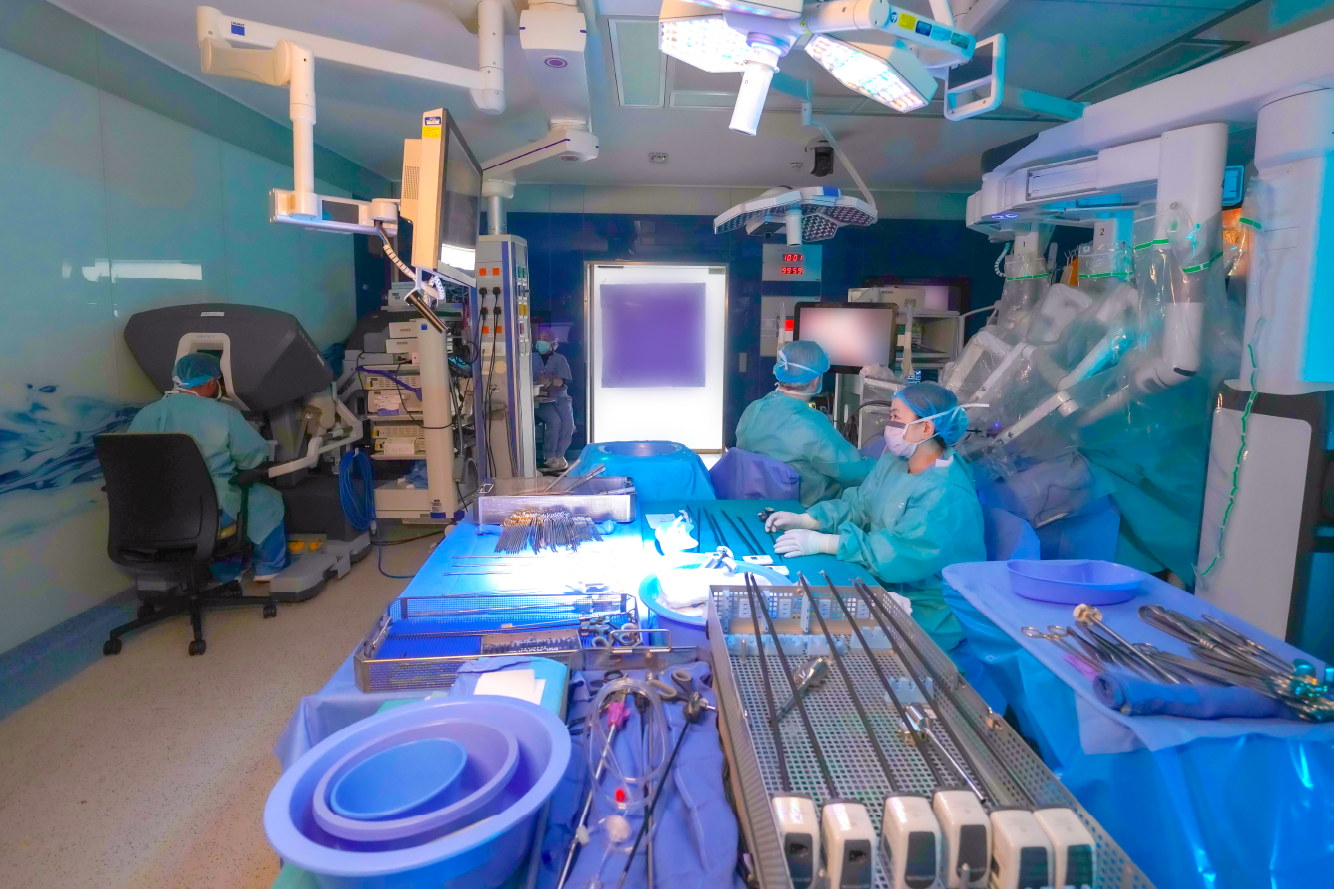
KFSHRC Advances Robotic Surgery with a Successful Ivor Lewis Esophagectomy
King Faisal Specialist Hospital and Research Centre (KFSHRC) in Riyadh successfully performed a robotic Ivor Lewis esophagectomy, the first of its kind in the Middle East, on a 46-year-old male diagnosed with gastroesophageal junction adenocarcinoma, a type of cancer located near the area where the esophagus meets the stomach. The patient regained mobility within two days of surgery, began oral intake by day five, and was discharged within ten days. This outcome demonstrates the effectiveness of the robotic approach in reducing pain, minimizing complications, and accelerating recovery compared to conventional surgery.
The procedure was led by Dr. Khalid Aldaghri, Consultant in bariatric, upper gastrointestinal, and robotic surgery at KFSHRC. Utilizing the Ivor Lewis technique, a complex and technically demanding procedure involving two phases. The abdominal phase involved stomach mobilization and creation of a gastric conduit. This was followed by the thoracic phase, in which the diseased esophagus was resected and the conduit is robotically connected within the chest.
Precision in the robotic system enabled surgeons to reach deep anatomical areas without large incisions, enhancing safety, reducing risks, and improving outcomes in one of the most complex cancer surgeries.
Close collaboration among surgical, anesthesia, nursing, and technical teams was key to the procedure’s success. All teams worked synchronously across every stage, from pre-op planning to post-op recovery. This approach reflects KFSHRC’s multidisciplinary model of care, designed to improve patient outcomes and boost clinical efficiency.
With its advanced features, the robotic surgery significantly enhanced the safety and accuracy of the esophagectomy by offering three-dimensional high-definition visualization, stable instrument control, and superior access within confined anatomical spaces. These capabilities enabled more precise dissection, better preservation of surrounding structures such as nerves and vessels and reduced intraoperative risks. The technology also made it physically easier for the surgeon to operate over an extended period.
As a medical milestone, the success of this procedure opens the door for broader applications of robotic surgery at KFSHRC. It enables more patients to benefit from advanced surgical techniques and reinforces the institution’s commitment to clinical innovation, safety, and effective alternatives to traditional surgical approaches.
It is noteworthy that King Faisal Specialist Hospital & Research Centre has been ranked first in the Middle East and Africa and 15th globally in the list of the world’s top 250 Academic Medical Centers for 2025. It was also recognized as the most valuable healthcare brand in the Kingdom and the Middle East by Brand Finance in 2024 and was listed among the World’s Best Smart Hospitals by Newsweek for 2025.








